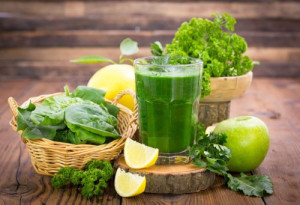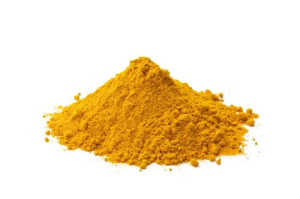Green Tea Extract
Table of Contents
NEWS: This superfood is now available in the SANEStore as a convenient whole-food powder so you can more easily enjoy it in smoothies and recipes.
Our Green Tea Extract Powder is a 98% extract meaning each serving contains a 98% concentration of total tea polyphenols, including 75% total catechins and 45% EGCG, while containing less than 2% caffeine.


Green tea originates from China and has become associated with many cultures in Asia from Japan to the Middle East. Recently it has become more widespread in the West, where black tea is traditionally consumed.
Over the last few decades green tea has been subjected to many scientific and medical studies to determine the extent of its long-purported health benefits, with some evidence suggesting regular green tea drinkers may have lower chances of heart disease and developing certain other health problems.
Researchers have found an apparent connection between green tea consumption and a reduced risk of developing type 1 diabetes. The key player in this new study is epigallocatechin gallate (EGCG) found in the tea. The tea has also been useful for weight loss management.
Green tea is a relative newcomer in the bone-health arena, but previous studies have also found that epigallocatechin-3-gallate (EGCG), a component of green tea, blocks the activity of two molecules, IL-6 and cyclooxygenase-2 (Cox-2), which play a role in breaking down bone.
It may also help protect fatty livers after a liver transplant. Green tea may even have fat-burning properties, which are related to a class of polyphenols called catechins — naturally occurring antioxidants that have a number of physiological and pharmacological properties.
Green Tea Extract Uses
Green tea extract has been shown in numerous studies to aid weight reduction, blood sugar management, disease prevention, and exercise recovery. It also aids in the maintenance of your skin and liver health while lowering blood fat levels, lowering blood pressure, and enhancing brain health. It may be taken in pill form, liquid form, or as a powder. (
Possible Green Tea Extract Benefits and Uses:
- May aid in weight management and fat loss
- May improve blood sugar levels and help prevent type 2 diabetes
- May help lower cholesterol and triglyceride levels
- Lowers blood pressure
- Helps prevent cancer Increases brain health
- Decreases risk of cardiovascular disease Healthy skin
- Prevents liver damage
- Reduce symptoms of allergies
- Provides protection for the liver Enhances endurance during exercise
How to Take Green Tea Extract:
There are many ways to take green tea extract. Whether you buy it as a pill, liquid supplement or powder form, just add any form of green tea into your diet.
You may also choose to blend it into your favorite smoothie recipe.
Which Type is Best?
Each one has its benefits, but it’s best to get all your green tea extract needs through whole food sources like fresh fruit and veggies.
Possible Side Effects:
Green tea extract is safe for most people when taken in the recommended amounts or less. Green tea does contain caffeine so if you are sensitive to caffeine, do not take green tea.
Some possible side effects of green tea may include feeling jittery, trouble sleeping, upset stomach, anxiety or irritability.
If any of these symptoms occur after you begin taking green-tea supplements or powder form of this supplement check with your doctor before continuing use.
Always follow the label recommendations of the brand you choose to ensure safety and correct dosing. Do not exceed 2 cups per day.
When taking green tea extract, start with a small amount and work your way up to avoid any negative side effects.
Green Tea Supplements vs Powder:
Green tea is most commonly found in capsule or pill form or in powdered form. However, there are some drawbacks to both of these forms.
Pills are easy to swallow but they may not be very effective since they have lost most of their potency by the time you consume them. Powdered green tea does not have the same effect as drinking it hot because it is lacking in one major component-the catechin EGCG (epigallocatechin gallate) which make up about 30% of the dry weight of fresh tea leaves.
Why Green Tea Extract?
- Fighting against heart disease
- Fighting Dementia
- Reduces high blood lipids
- Combating Arteriosclerosis
- Helping keep bones strong
- Fighting Cerebral thrombus
- Reducing risk of developing type 1 diabetes
- Preventing the reduction of glutathione by a whopping 87-100%
- Helping reduce rosacea when applied topically
- Reduces pain & inflammation related to rheumatoid arthritis
- Fighting certain types of cancer including prostate cancer
- Supporting adrenal function
- Helping weight loss
- Inhibiting the matrix metalloproteinases (MMP) enzyme, which contribute to age-related degradation of the skin matrix
References
1. Ahmad N et al. Cutaneous photochemoprotection by Green Tea: A brief review. Skin Pharmacol App`l Skin Physiol 2001; 14: 69-76. (ref. 4865)
2. Katiyar SK, et al. Green Tea and skin photoprotection. Cosmetics Toiletries 2001; 116 9: 69- 76. (ref. 4760)
3. Craig A, et al. Cutaneous photoprotection from ultraviolet injury by green tea polyphenols. Journal American Academy of Dermatology 2001; 44 3: 425-432. (ref. 4866)
4. Säntosh K, et al. Green tea polyphenolic antioxidants and skin photoprotection (Review).International Journal of Oncology 2001; 18:1307-1313. (ref. 4833)
5. Morganti, P, et al. New data on skin photoprotection. International Journal of Cosmetic Sciente 2000; 22 4: 305-312. (ref. 3969)
6. Säntosh K, et al. Green tea and skin. Arch Dermatol 2000; 136 8: 989-994. (ref.4867) Säntosh K, et al. Polyphenolic antioxidant Epigallocatechin-3-Gallate from Green Tea reduces UVB-induced inflammatory responses and infiltration of leukocytes in human skin. Photchemistry and Phochemistry 1999; 69 2: 148-153. (ref. 4868)
7. Guo Q, et al. Studies on protective mechanisms of four components of green tea polyphenols against lipid peroxidation in synaptosomes. Biochimica et Biophysica Acta 1996; 1304: 210-222. (ref. 2532)
8. Fourneau C, et al. Radical scavenging evaluation of green tea extracts. Phytotherapy Research 1996; 10: 529-530. (ref. 2533)
9. Morazzoni P, et al. Phytochemical anti-oxidants for cosmetic application. Agro-Food-Industry Hi-Tech 1995 : 12-16 (ref. 1996)
10. Czygan FC, et al. Herbal Drugs and phytopharmaceuticals. London :Norman Grainger Bisset, 1994; 490-492
11. Makimura M et al. Inhibitory Effect of Tea Catechins on Collagenase Activity. J Periodontol 1993; 64 7: 630-636. (ref. 1848)
12. Lunder TL. Catechins of Green Tea. Antioxidant Activity. ACS Sumposium series 1992; 507: 114-120. (ref. 1843)
13. Weisburger JH. Physiological and Pharmacological Effects of Camelia sinensis (Tea): First International Symposium. Preventive Medicine 1992; 21: 329-330. (ref. 1846)
14. Ho CT et al. Antioxidative Effect of Polyphenol Extract Prepared from Various Chinese Teas. Preventive medicine 1992; 21: 520-525. (ref. 1847)
15. Finger A et al. Chromatography of tea constituents. Journal of Chromatography 1992; 624: 293-315. (ref. 1827)
16. Wang ZY, et al. Inhibitory effect of green tea on the growth of established skin papillomas in mice Cancer Res 1992; 52 23: 6657-6665
17. Tofovic S, et al. Caffeine Potentiates Vasodilator-Induced Renin Release. The Journal of Pharmacology and Experimental Therapeutics1991; 256 3: 850 – 860. (ref. 187)
18. March 2013, Volume 33, Issue 3, Pages 180–187. “Green tea supplementation increases glutathione and plasma antioxidant capacity in adults with the metabolic syndrome” Authors: Basu A, Betts NM, Mulugeta A, Tong C, Newman E, Lyons TJ.
19. Bruneton J. Elementos de Fitoquímica y de Farmacognosia. Zaragoza: Acribia, 1991; 543-550. Farmacopea Francesa IX Edición. DAB 10








